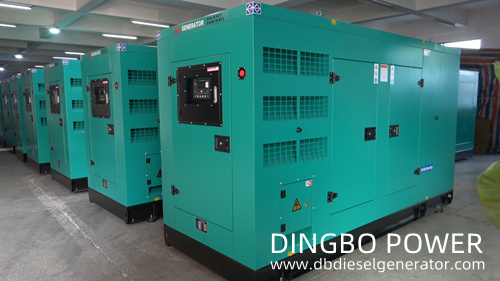dingbo@dieselgeneratortech.com
+86 134 8102 4441

- Home
- Products
- About Us
- Service
- News
- Technical Support
- Contact Us
dingbo@dieselgeneratortech.com
+86 134 8102 4441
Jun. 12, 2023
When the diesel generator is running, the turbocharger rotor set rotates at a very high speed (tens of thousands to hundreds of thousands of revolutions per minute). If the pressure and quality of the lubricating oil do not meet the requirements of the technical specification, faults will often occur during use. The common bearings of the turbocharger of diesel generator are burned, the blades are broken, the boost pressure drops, the boost pressure is too high, and the compressor surges.
1. Blade breakage or operation is mainly caused by foreign objects.
Because the blades of the Diesel generator turbine are exposed to high temperature gas and rotate at a high speed, if there is a small hard object, it will produce a great impact, which will make the blades bend or crack.
2. Bearing burning is generally caused by low lubricating oil pressure, insufficient lubricating oil volume, or excessive impurities in the lubricating oil. If the lubricating oil of the turbocharger is not clean during use, and impurities such as metal impurities are mixed in the oil, it is easy to cause bearing burning.
3. Excessive boost pressure often accompanies turbocharger overspeed. The reasons for this malfunction include: poor operation of the fuel supply system, fatal combustion of individual cylinders; The exhaust valve leaks, causing the exhaust temperature to be too high; The turbocharger turbine nozzle ring is blocked by carbon deposition, resulting in a decrease in the flow area, and the gas injection speed is too fast, accelerating the rotation speed of the rotor group.

4. When the supercharger of the Diesel generator operates at a certain stable speed, the amount of air delivered to the combustion chamber is insufficient, and the delivered air pressure fluctuates greatly, accompanied by the wheezing sound at the compressor, which is called surge. The factors that cause this malfunction include: blockage of the airflow channel; The blades of the turbocharger's diffuser or nozzle ring deform or become loose, causing changes in the shape of the airflow channel, making the turbocharger unable to match the diesel engine; Improper operation, etc.
5. The decrease in boost pressure refers to the relative decrease in the value of boost pressure under the same load conditions as the unit. The decrease in speed and boost pressure of the turbocharger is mainly due to malfunctions in the exhaust gas turbine or mechanical parts. This fault may be due to the deformation of the nozzle ring blades due to high temperature, resulting in an increase in the nozzle flow area; Or there is air leakage at the exhaust pipe joint, which reduces the amount of exhaust gas energy that can be utilized in the turbine. The mechanical factor is that the turbocharger cannot be maintained for a long time, and there is too much carbon accumulation at the impeller inside the turbine casing, which increases the rotational resistance of the rotor group. If the boost pressure decreases and there is no significant change in the speed of the turbocharger, the fault is generally caused by the compressor, such as dirty air filter elements, dirt and oil stains on the internal airflow channels of the compressor, leading to a decrease in the efficiency of the luck machine.
The above is the reason why the pressure of the supercharger of the diesel generator set fails. If you are interested in diesel generator, please contact us by email dingbo@dieselgeneratortech.com .
Quicklink
Mob.: +86 134 8102 4441
Tel.: +86 771 5805 269
Fax: +86 771 5805 259
E-mail: dingbo@dieselgeneratortech.com
WhatsApp: +86 134 8102 4441
Add.: No. 10 Kechuang Road, High tech Zone, Nanning, Guangxi, China